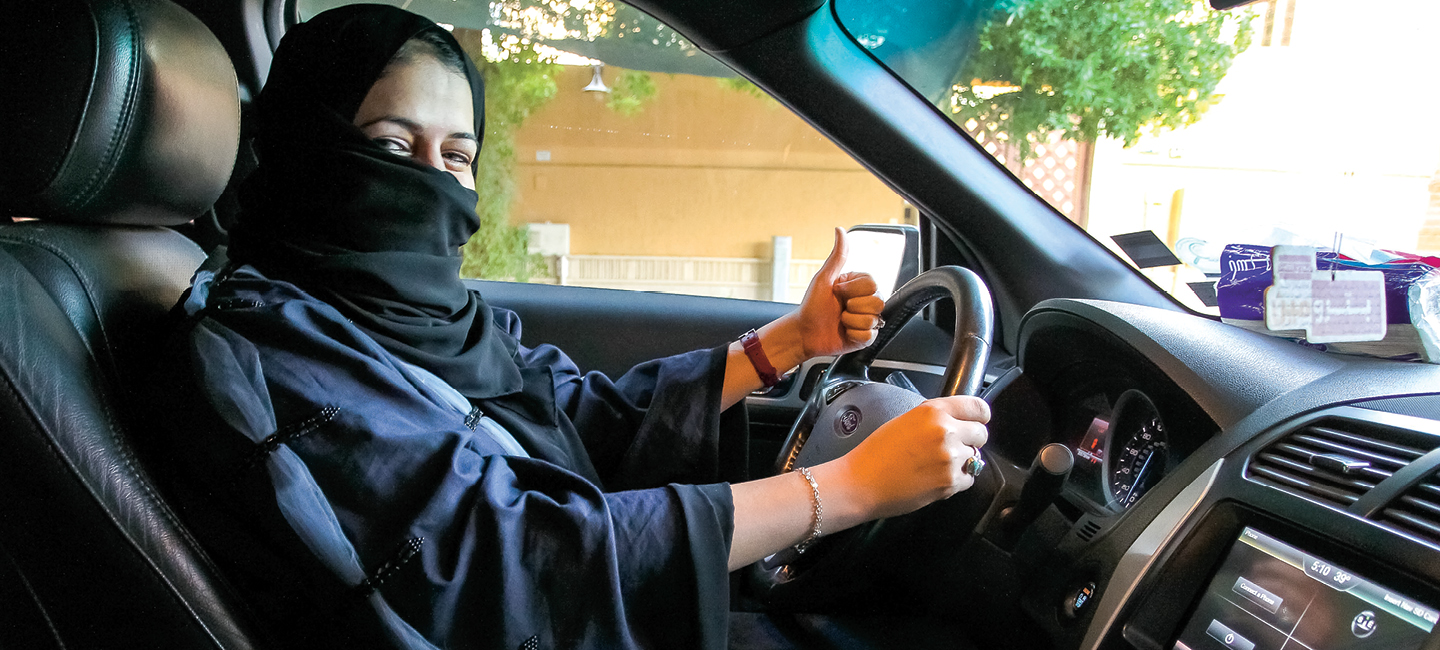Imagine living in a country where women aren’t allowed to drive. That’s always been the law in Saudi Arabia, the conservative Islamic kingdom and longtime ally of the United States. But after years of controversy, the world’s only nationwide ban on women driving—which had become a global symbol of the oppression of women—is coming to an end.
The change, announced by royal decree in late September, will take effect in June 2018. Saudi women, some of whom have been fighting for the right to drive for nearly 30 years, say they’re thrilled with the change.
“It is amazing,” says Fawziah al-Bakr, a Saudi university professor. In 1990, al-Bakr was one of the 47 women who participated in the kingdom’s first protest against the ban. After driving around the Saudi capital, Riyadh, the women were arrested and some lost their jobs.
“Since that day, Saudi women have been asking for the right to drive, and finally it arrived,” al-Bakr says. “We have been waiting for a very long time.”
Imagine living in a country where women aren’t allowed to drive. That’s always been the case in Saudi Arabia, the conservative Islamic kingdom and longtime ally of the United States. The law has long been a global symbol of the oppression of women. But after years of controversy, the world’s only nationwide ban on women driving is coming to an end.
The change, announced by royal decree in late September, will take effect in June 2018. Saudi women say they’re thrilled with the change. Some of them have been fighting for the right to drive for nearly 30 years.
“It is amazing,” says Fawziah al-Bakr, a Saudi university professor. In 1990, al-Bakr was one of the 47 women who participated in the kingdom’s first protest against the ban. The women drove around the Saudi capital, Riyadh. They were arrested and some lost their jobs.
“Since that day, Saudi women have been asking for the right to drive, and finally it arrived,” al-Bakr says. “We have been waiting for a very long time.”

